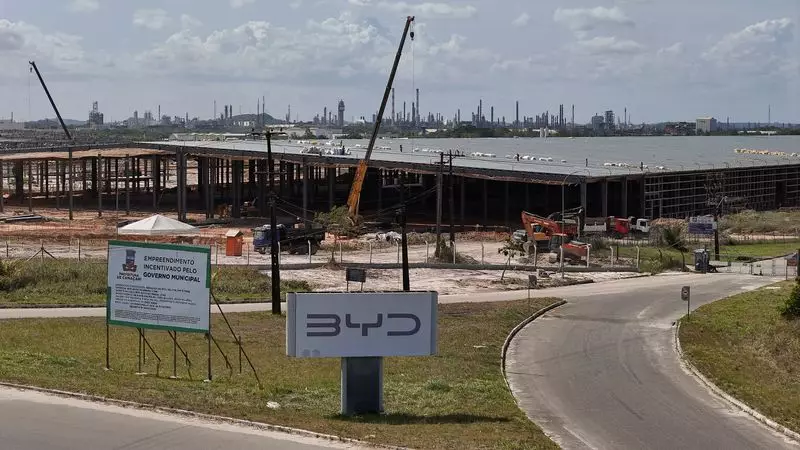The recent controversy surrounding BYD (Build Your Dreams), a major electric vehicle manufacturer, highlights significant labor violations and the complexities of international operations in emerging markets. The company, which has established a factory in Brazil, has faced severe criticism after reports surfaced of 163 Chinese workers being subjected to “slavery-like conditions”. This situation exposes not only ethical concerns but also raises questions about the integration of labor laws in multinational contexts, particularly in Indonesia, where BYD signed a deal estimated at $620 million to construct its factory.
In December 2023, Brazilian labor authorities conducted an investigation that led to the rescue of these workers from deplorable conditions, a stark reminder of the darker side of globalization. The findings prompted immediate action from labor inspector Liane Durao, who confirmed the irregularity of the workers’ visas and their dire circumstances. Despite BYD’s claim of compliance and its assertion that the workers had entered Brazil voluntarily, the revelations challenge the narrative of a smooth operational transition into the Brazilian market.
The treatment of workers in site construction puts BYD’s corporate ethics under scrutiny. Durao emphasized that the company would face consequences, including financial penalties for each worker found in violation of Brazilian labor standards. Such implications serve as a reminder of the legal frameworks designed to protect workers, especially in an environment that is increasingly influenced by foreign investment.
This investigation brings to the forefront critical discussions surrounding labor rights versus profit motives. BYD’s operational model, which heavily involves sourcing labor from China, raises concerns about its impacts on local employment opportunities—an essential factor for President Luiz Inacio Lula da Silva’s administration. The Brazilian government has taken a firm stance by suspending the issuance of temporary work visas to BYD, indicating that issues of labor rights could shape bilateral relations and future investment talks.
BYD’s investment in Brazil is not merely a local enterprise; it represents a strategic component of its global expansion goals. Initially aimed at producing 150,000 electric vehicles, the Brazilian factory is critical to BYD’s intent to establish a stronghold in one of its largest markets outside of China. The fact that nearly one-fifth of BYD’s international sales occurred in Brazil underscores the strategic importance of this venture.
However, the labor investigations present a potential setback for the company’s growth trajectory in the region. Delayed construction and scrutiny from labor authorities could stymie the pace of operations, marking a significant hurdle in a fiercely competitive industry where timeliness is often synonymous with market advantage.
Moreover, allegations of human trafficking and withholding of passports by contractors like Jinjiang Group strain the company’s public image just as it seeks to solidify its standing in the global electric vehicle market. The ramifications of these allegations could extend beyond immediate penalties, potentially affecting investor confidence and customer perceptions.
As BYD navigates the complex landscape of labor laws, corporate ethics, and market expansion, it must prioritize the rights and welfare of its workers. The situation serves as an important case study for other multinational corporations and emphasizes the necessity for rigorous compliance mechanisms in foreign labor practices. Responsible sourcing and treatment of labor should not just be a valid business strategy but rather a fundamental obligation.
The engagement with Brazilian authorities signals a commitment to remediate past issues; however, it remains essential for BYD to implement proactive measures that protect workers in the future. By fostering transparent labor practices and ensuring safe working conditions, the company can not only comply with legal standards but also reinforce its reputation as a leading player in the global electric vehicle market.
The BYD controversy in Brazil illustrates the challenges faced by multinational corporations operating in countries with distinct cultural and legal frameworks. The dual pressures of labor rights advocacy and market competition will continue to shape the narrative around BYD’s expansion—and indeed, the future of international business within emerging economies.

